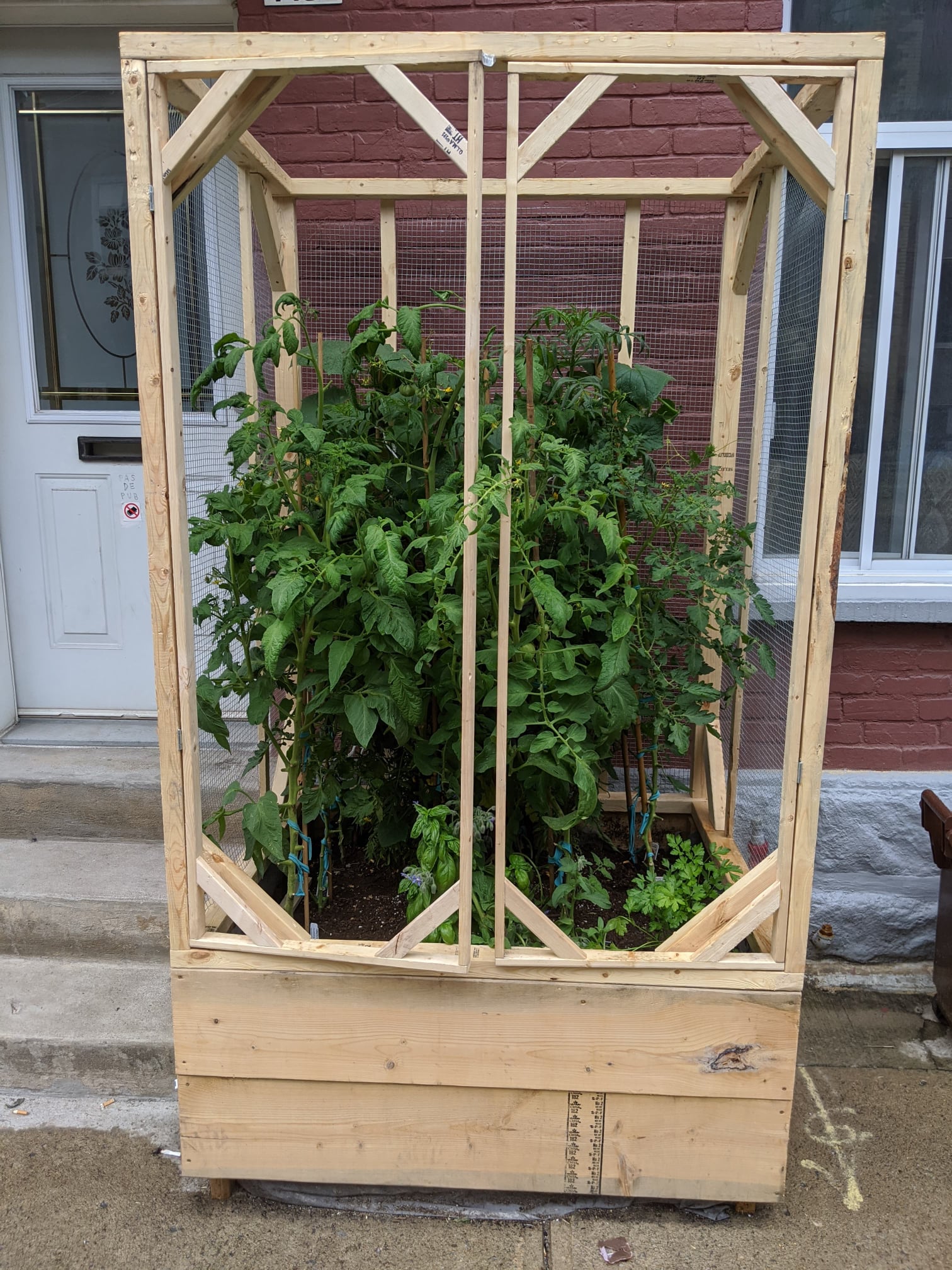Zac Clarke wants everyone to have a garden — so they’re building them for free
For Zac Clarke, founder of “Free Gardens for All,” the pandemic was an opportunity to rethink the direction of their life. Clarke owns “Dirty Pizza” on Mont-Royal Avenue, and after three years of working 60-70 hour weeks, they were completely burnt out. Then came the pandemic.
“I call coronavirus ‘the great pause,’” said Clarke. “I kinda stopped and thought: is this what I wanna do? And I decided that I wanted to make more money with my labour and less money exploiting the labour of others.”
Clarke originally studied carpentry at École des métiers de la construction de Montréal, but worked a series of kitchen jobs after graduating, which led them to Dirty Pizza.
Clarke’s goal now is to return to woodworking as an entrepreneur, and in the meantime they had a great idea: building free garden boxes. Not only would this allow them to get back into the swing of things with carpentry, but “as a baby socialist and anarchist, it’s good praxis!”
Garden boxes are small, raised planting beds that can be placed in a backyard, on a porch, a balcony, or even on the sidewalk, turning what was once bare concrete into a place to grow your own organic produce.
Clarke finds scrap wood — their first three boxes were all made from one-third of an old deck — and constructs the boxes with the help of volunteers.
The plan is to construct 20 boxes over the cold season and get at least 80 per cent of them producing food by next summer. After that, they’ll register as a nonprofit co-op and, if all goes well, Clarke can leave the project to grow on its own.
“When I was in high school I had a great theatre teacher, Louise Chalmers, who always said ‘If I get hit by a bus tomorrow, I want this production running,’” said Clarke. “The hope with this is that I get the legs going, I get people motivated, and people can build free gardens whether I’m here or not.”
But they need volunteers to help make that happen. In particular, Clarke is looking for someone with a truck and anyone who has carpentry experience, but they made it clear that Free Gardens For All is an anti-ableist organization and welcomes everyone who has time to help.
Right now they’re focusing on building boxes and getting them installed, and once the spring comes, Clarke and volunteers will fill all the gardens with soil and compost from the Eco-Quartier so folks can get started planting.
With this project, Clarke hopes to get food back into the hands of the people. Another way to achieve that, they told me, is to get the city to expropriate roofs from the landlords who are hoarding them. All that extra growing space is a huge, unused resource.
“We’re fucked when it comes to climate change, when it comes to where our food comes from, when it comes to people not being able to afford food or healthy food,” they said.
But by making as many boxes as possible, hopefully “The spaces get greener, the money gets greener, and if the rooftops start coming, instead of people like Lufa, you’ve just got free fuckin’ gardens on people’s roofs.” Lufa is a Montreal-based company that sells produce grown in rooftop greenhouses.
Free Gardens For All is taking an intersectional approach for distributing garden boxes, and giving priority to anyone whose life would be really improved by having access to free, organic produce.
To volunteer, or to request a free garden box of your own, email freegardensforall@gmail.com and they’ll send you a Google form.
